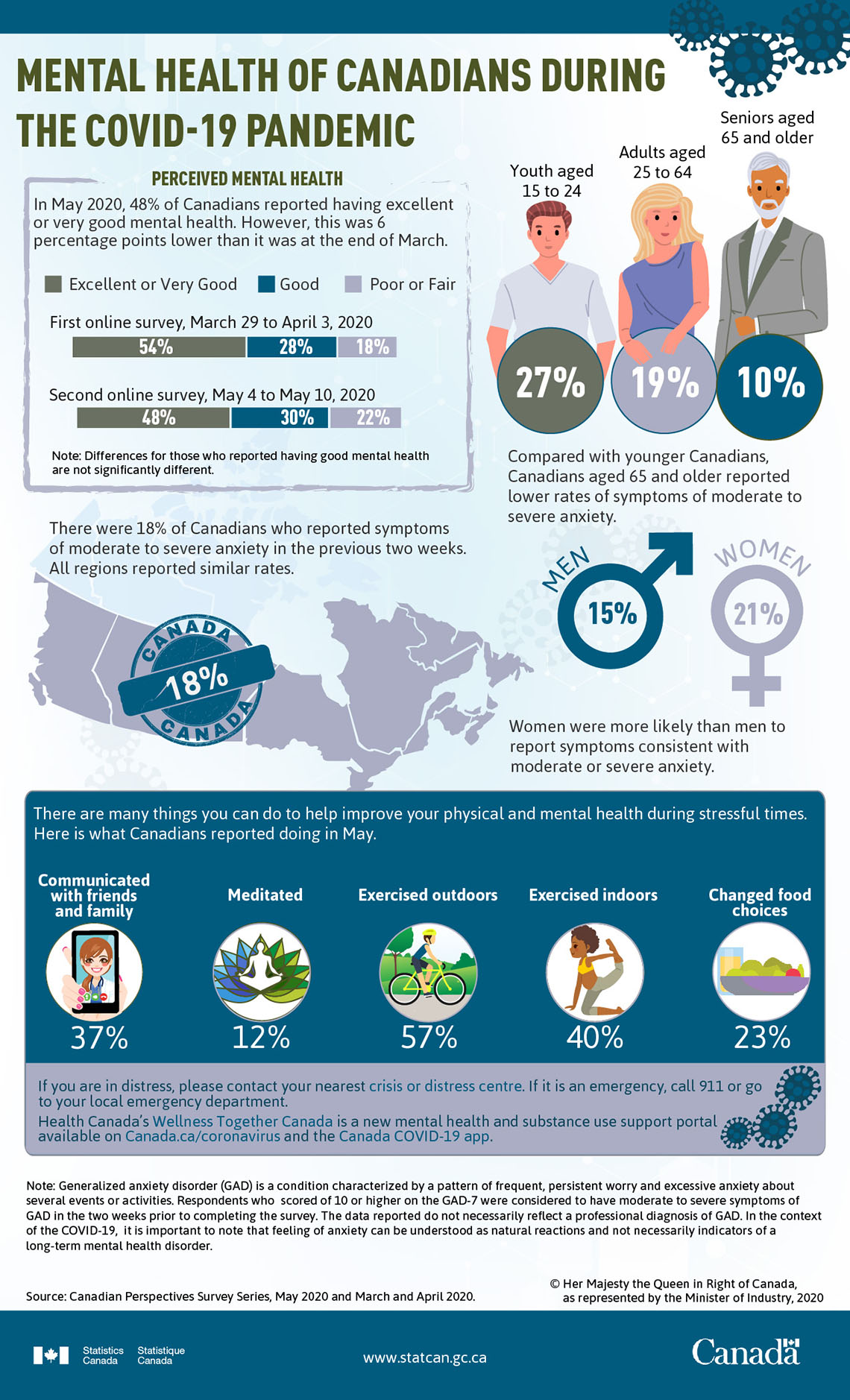Mental health of Canadians during the COVID-19 pandemic
Archived Content
Information identified as archived is provided for reference, research or recordkeeping purposes. It is not subject to the Government of Canada Web Standards and has not been altered or updated since it was archived. Please "contact us" to request a format other than those available.

Description: Mental health of Canadians during the COVID-19 pandemic
Mental health of Canadians during the COVID-19 pandemic
Perceived mental health
In May 2020, 48% of Canadians reported having excellent or very good mental health. However, this was 6 percentage points lower than it was at the end of March.
| Perceived mental health | First online survey, March 29 to April 3, 2020 | Second online survey, May 4 to May 10, 2020 |
|---|---|---|
| Excellent or Very Good | 54% | 48% |
| Good | 28% | 30% |
| Poor or Fair | 18% | 22% |
| Note: Differences for those who reported having good mental health are not significantly different. | ||
There were 18% of Canadians who reported symptoms of moderate to severe anxiety in the previous two weeks. All regions reported similar rates.
Compared with younger Canadians, Canadians aged 65 and older reported lower rates of symptoms of moderate to severe anxiety.
| Youth aged 15 to 24 | Adults aged 25 to 64 | Seniors aged 65 and older | |
|---|---|---|---|
| Reported moderate to severe symptoms of anxiety | 27% | 19% | 10% |
Women were more likely (21%) than men (15%) to report symptoms consistent with moderate to severe anxiety.
There are many things you can do to help improve your physical and mental health during stressful times. Here is what Canadians reported doing in May.
| Participation rate | |
|---|---|
| Communicated with friends and family | 37% |
| Meditated | 12% |
| Exercised outdoors | 57% |
| Exercised indoors | 40% |
| Changed food choices | 23% |
If you are in distress, please contact your nearest crisis or distress centre. If it is an emergency, call 911 or go to your local emergency department.
Health Canada’s Wellness Together Canada is a new mental health and substance use support portal available at www.canada.ca/coronavirus and on the Canada COVID-19 Support App.
Footnotes
Generalized anxiety disorder (GAD) is a condition characterized by a pattern of frequent, persistent worry and excessive anxiety about several events or activities. Respondents who scored 10 or higher on the GAD-7 scale were considered to have moderate to severe symptoms of GAD in the two weeks prior to completing the survey. The data reported do not necessarily reflect a professional diagnosis of GAD. In the context of COVID-19, it is important to note that feelings of anxiety can be understood as natural reactions and are not necessarily indicators of a long-term mental health disorder.
Source: Canadian Perspectives Survey Series, May 2020 and March and April 2020.
- Date modified:
